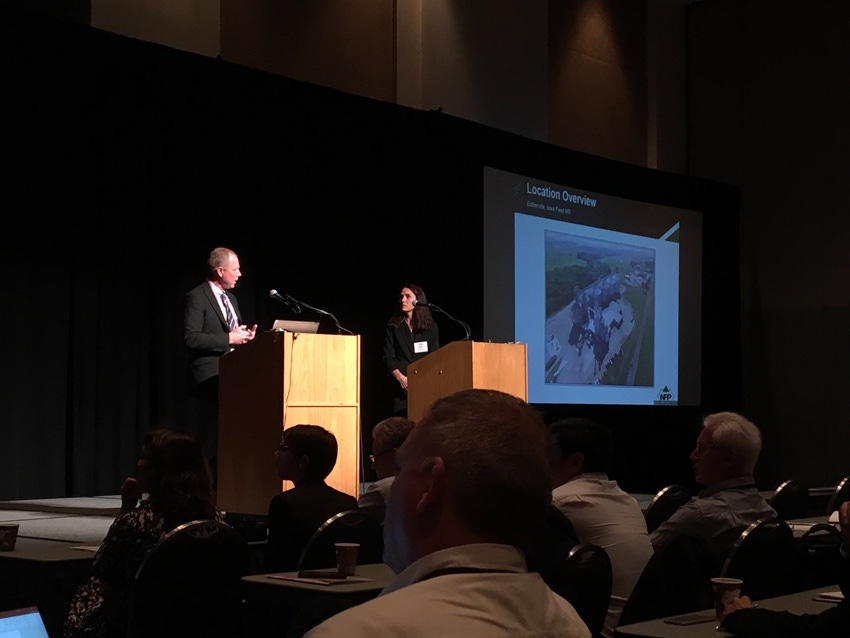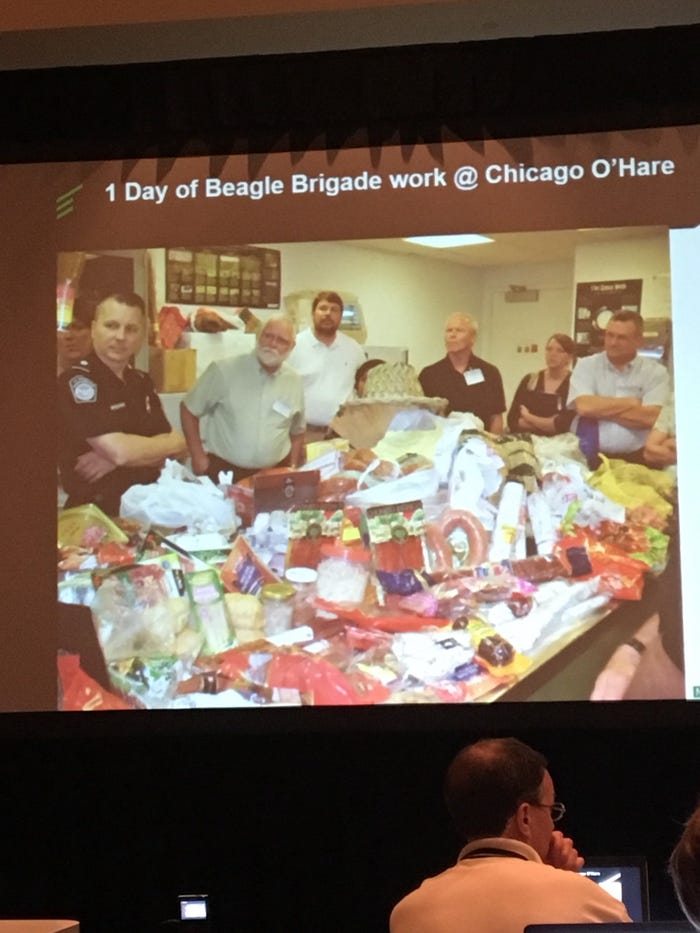With devastation of ASF, there is opportunity for U.S. producers
“It is a new reality and as vets and as producers, we need to be doing everything we can to keep the virus out of this country,” says Brad Freking.

If you ask Brad Freking, New Fashion Pork, what are the emerging issues hog producers need to be most concerned about? He’ll tell you African swine fever must be at the top of the list.
“There is nothing more important than keeping this disease out of the U.S. because whether you like it or not, by the end of this year, it is going to be in North Korea, it’s going to be in Vietnam, it’s going to Laos and Cambodia, and it’s going to be coming down because that is a tropical area and it’s in wild pigs and biting insects,” says Freking.
Freking, whose family-run operation markets 1.4 million hogs annually and owns nearly 60,000 sows in seven states, shared his perspective on the virus that some say has reached “pandemic proportions” at the Allen D. Leman Swine Conference this week.
“You can’t be in pork production today and not talk about ASF, and the magnitude of it and where we are at today,” Freking says.
Based in Jackson, Minn., and the 19th largest hog producer in the United States, Freking says he is most curious about China’s index case which happened back in March and April of 2018, but didn’t get reported until August. The index case was a 100-pig producer, but Freking says if he remembers the math right about 55 pigs died and then they sold the other 45 to other people. However, the first officially reported case was in August.
While producers in China say the government is not paying enough money, the locals are importing and the virus is being disseminated throughout the food chain. For example, ASF was found in dumplings and other foods containing pork that were brought back from China by several South Koreans on Aug. 3.

This is the result of one day of the Beagle Brigade at the Chicago O’Hare airport.
“We need to talk. People need to get on this,” says Freking. “This is one day of the Beagle Brigade at the Chicago O’Hare airport. One day. Think about that,” he says referencing a photograph of a heaping pile of a variety of meat products confiscated from travelers.
Feed ingredients and feed sources are another area producers should be concerned about regarding ASF. Research conducted by Scott Dee, et al., has shown that certain feedstuffs are able to support ASF during a simulated trans-Pacific shipment.
Freking says while New Fashion Pork is already isolating all of their Chinese sources and Chinese ingredients are going into quarantine for minimum 45 days, stepping up biosecurity practices is also crucial.
He also believes the industry needs to stop some “stupid” practices such as importing organic soybean meal from China and importing pork products from countries that have tested positive for the virus. Freking questions how those practices make sense?
“It is a new reality and as vets and as producers, we need to be doing everything we can to keep the virus out of this country because it will have a huge opportunity for us going forward,” says Freking. “Keep this in mind, all of the globally traded pork, every pound traded globally is only equal to 18% of China’s domestic supply. With the devastation of ASF, there’s huge opportunity.”
After ASF, Freking says the next issue producers need to pay attention to is fake meat. He says its disruptive technologies, like plant-based or cell-cultured meat, that can change and hurt the industry’s current business model. This year plant-based meats have been growing at a rate of 24% and have topped $670 million in sales.
He says the real disturbing market has been fluid milk, which has dropped 30% in consumption over the last decade, of which over 50% was chewed up by milk alternatives.
“If you don’t think these products can’t disrupt our marketplace, I think you are kidding yourself,” Freking says.
About the Author(s)
You May Also Like




.jpg?width=300&auto=webp&quality=80&disable=upscale)
